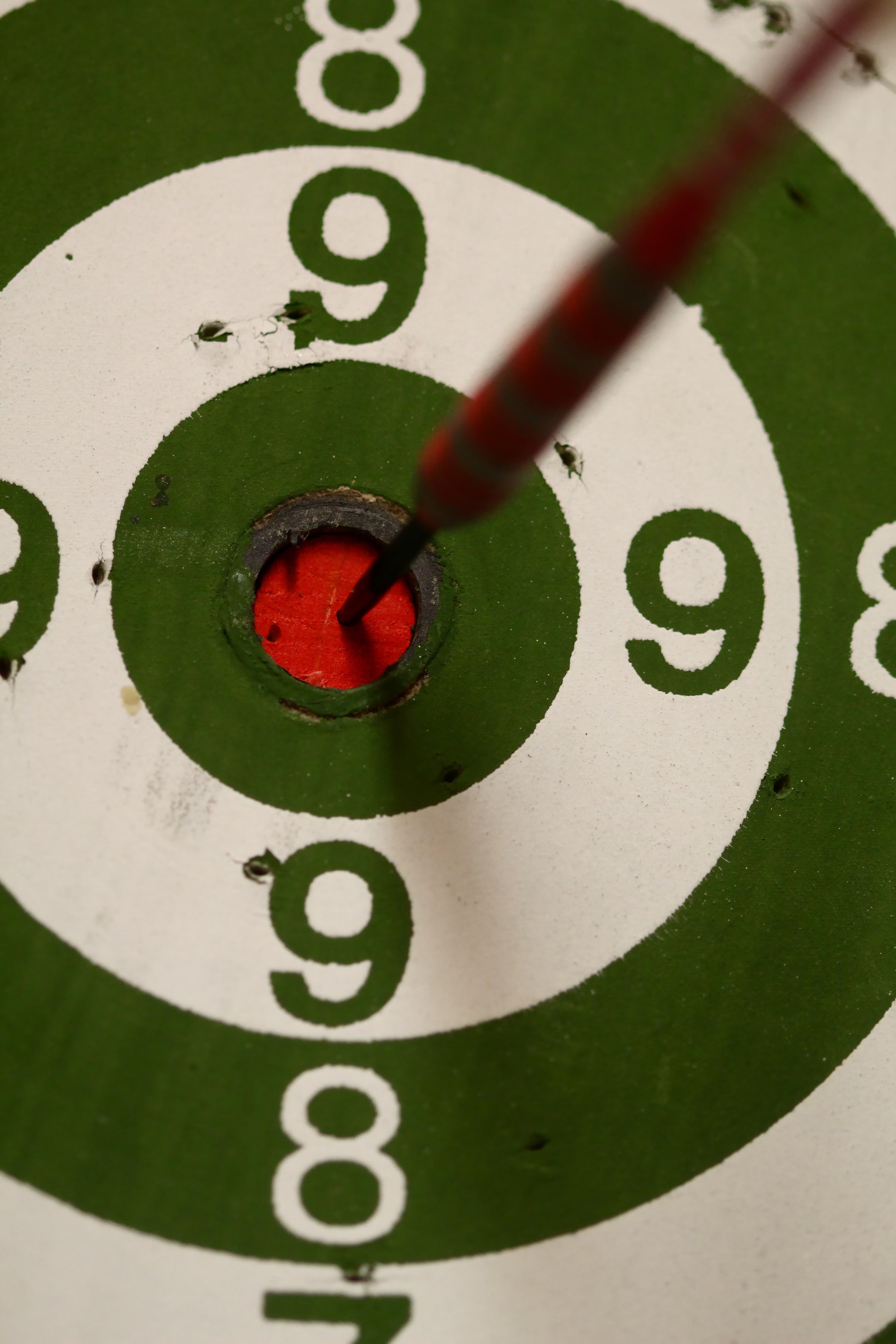Flourish
Daily Practice:
Expecting Less Is More?

00:00
00:00
Today we are going to further explore how to think about human happiness and what goes into determining it.
We are going to start by proposing a hypothetical situation. Say you’re sitting around on a quiet Sunday afternoon. Maybe you just mowed the lawn. Maybe you’re watching a TV show. Maybe you’re admiring your snow globe collection on the shelf. All of a sudden, someone pounds at the door. You rush over to see who it is. Surprise: it’s me. I’m standing outside holding a big briefcase that’s overflowing with cash. Naturally, you let me in.
Once inside, I propose a game. I start by giving you a small amount of cash — $20, say. Next, I pull out a coin. For every round of the game, you flip a coin, where heads means some monetary gain and tails means some monetary loss. As an example, in one round, you might flip a coin and heads means you gain $10 and tails means you lose $2. In future rounds the payoff would change, but the idea is the same. Every few turns, we pause and you indicate how happy you’re feeling using a fun little dial.
Now, pretend that you agree to do this experiment. What would you expect the relationship between your winnings and your self-reported happiness to look like? It seems safe to say that as you earn money, your happiness should increase. If you lose money in a given round, you should probably see a slight dip, but so long as you gain money overall, the happiness trend over the course of the experiment should be positive. At the end, assuming you’ve earned money over the course of the experiment, you should definitely report higher happiness than when you started.
Well, it turns out that this does not have to be just a hypothetical. A group of researchers have actually run this experiment with real people for real money, looking at how their self-reported happiness changes over the course of the game as they gain or lose money. The researchers then mapped out the monetary winnings of each participant and their self-reported happiness on the same chart.
What actually happens may surprise you. The researchers observed that there was no close relationship between how much they’re earning and how happy they report feeling. Moreover, the experiment is designed so that all participants end up leaving with more than the $20 they started with, with the average participant earning nearly 10 additional dollars over the course of the experiment. Yet even at the end of the experiment, there was no significant relationship between how much they earned and the difference between their happiness at the start versus end.
What’s happening here? How can doing well in the game and earning real money not translate to happiness?
The researchers believe that our brain is not processing the outcome of this game as simply as we think. Rather than solely judging whether you gain or lose money, your brain is also calculating what is called reward prediction error. What is reward prediction error? Well, as you flip the coin, your brain automatically forms a prediction of what will happen. Reward prediction error is the difference — the error — between this prediction and what actually happens. Depending on the result, this can lead to a positive or negative effect on your happiness.
The researchers built a model to explain the relationship between winnings and happiness, and when they included reward prediction error, it became much more accurate. Importantly, reward prediction error was not the only factor at play (the amount you expected to earn mattered too) but it was the most significant component.
This very specific psychology experiment is relevant because each of our life choices represent something of a coin flip. You never know exactly how good, bad or neutral something will turn out. You make your best guess — and automatically form your prediction — but you will usually be wrong, whether by a little or a lot. The reward prediction error you face will then have a meaningful impact on your happiness.
You may have common-sense intuition around reward prediction error already. You can probably think of a time when you went into something with overly high expectations. Maybe it was a first date. Or your favorite artist’s concert. Or that fried chicken sandwich that looked just so very crispy in the ad. Yet when those expectations weren’t met, it was a bit of a letdown. The date, or concert, or sandwich might have still been objectively good, but you couldn’t help feeling a bit disappointed later that evening.
You can also probably think of a time when something exceeded your low expectations. Maybe your great aunt’s birthday party that you couldn’t get out of. Or your boyfriend’s favorite artist’s concert that you begrudgingly agreed to attend despite your, uh, aversion to death metal. While it probably was not the time of your life, you may have found yourself pleasantly surprised that it was not as dismally miserable as you’d feared.
The lesson here is not to walk around expecting only horrible things so that you’re constantly pleasantly surprised. Such a negative outlook is practically impossible and brings its own downsides. It is also not a very useful way to guide important decisions in your life.
However, being able to consider reward prediction error as one important factor in your happiness is immensely valuable. It can remind you to manage your expectations if they start to run away and become unrealistic. It also reveals that entering something with low expectations is not a total curse; so long as your expectations are exceeded, it can end up feeling much like a positive outcome.